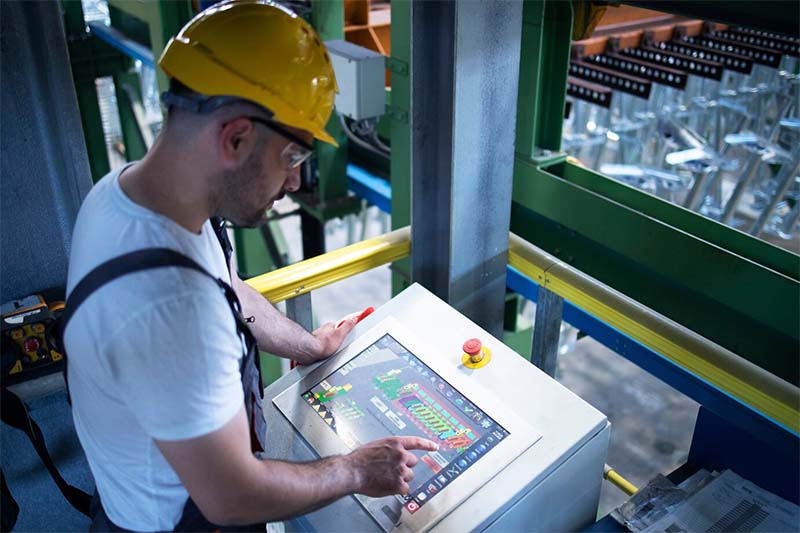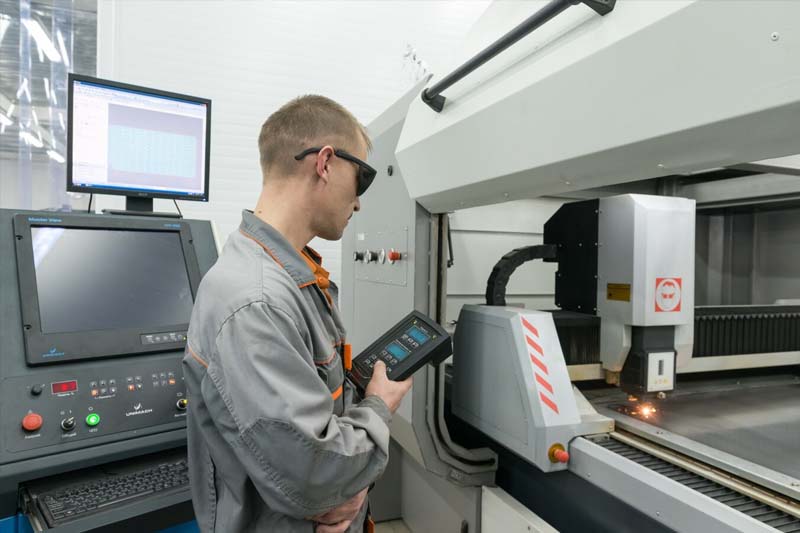Understanding the factors that influence Industrial Panel PC prices is crucial for informed decision-making. By delving into the intricacies of pricing determinants, businesses can optimize their investments, ensuring that the selected panel PC aligns with both functional requirements and budget considerations. In this blog, we’ll explore the key components shaping Industrial Panel PC prices and discuss strategies for choosing wisely in a market brimming with options.
Introduction
Industrial Panel PCs, dynamic computing solutions designed for rugged environments, have become integral to various industries. These robust systems seamlessly integrate computing power with display capabilities, serving critical functions in sectors like manufacturing, automation, and healthcare.

Key Components Impacting Industrial Panel PC Prices
Processor and Performance Capabilities
In the realm of Industrial Panel PCs, the choice of processors plays a pivotal role in determining both performance capabilities and overall system cost.
1. Diverse Processor Options and Pricing Influence
The market offers a diverse array of processor options, ranging from entry-level to high-performance models. The choice of processor significantly impacts the Industrial Panel PC’s overall cost. Entry-level processors, often suitable for basic applications, tend to come at a lower price point. In contrast, high-performance processors equipped with advanced features command a higher cost. Understanding the nuances of these options allows businesses to align their choice with specific operational requirements and budget constraints.
2. Performance’s Impact on System Cost
The correlation between performance and system cost is intrinsic to Industrial Panel PCs. Enhanced processing capabilities, such as faster clock speeds and multiple cores, contribute to a higher overall cost. However, this cost is often justified by improved efficiency, quicker data processing, and the ability to handle more complex tasks. Businesses need to strike a balance between the desired level of performance and the associated costs, ensuring that the chosen Industrial Panel PC meets operational demands without exceeding budgetary limits.
It’s essential to evaluate the specific needs of the industrial environment. While some applications may thrive with a more economical processor, others requiring heavy computational power may necessitate a higher investment. By carefully considering the processing requirements, businesses can make informed decisions that optimize both performance and cost-effectiveness in their Industrial Panel PC investments.
Display Technology and Size
When it comes to Industrial Panel PCs, the display is a critical component influencing both functionality and overall cost. Understanding the impact of display technology and size is key to making informed decisions in the purchasing process.

1. Impact of Display Type on Pricing
The choice of display technology, such as LCD (Liquid Crystal Display) or LED (Light-Emitting Diode), significantly affects the pricing of Industrial Panel PCs. LCD panels, while being a traditional and cost-effective option, may come at a lower initial price. On the other hand, LED displays, known for their energy efficiency and enhanced brightness, often command a premium. Businesses must weigh the specific needs of their applications against the budget constraints to determine the most cost-effective yet functional display technology for their Industrial Panel PC.
2. Relationship between Screen Size and Overall Cost
The size of the display is another critical factor influencing the overall cost of Industrial Panel PCs. Larger screens not only enhance visibility and usability but also contribute to a higher price tag. The relationship between screen size and cost is often exponential; as the screen size increases, so does the overall expense. It’s imperative for businesses to carefully assess their operational requirements, balancing the need for a spacious display with budget considerations.
Moreover, industries with applications demanding intricate visual details or complex processes may find larger screens indispensable. Conversely, for simpler tasks, a more modest screen size might suffice. Striking the right balance between display size and cost ensures that businesses acquire an Industrial Panel PC that meets their operational needs without unnecessary expenditure.
Build Quality and Materials
1. Materials and Costs
The materials chosen for constructing Industrial Panel PCs directly impact pricing. High-quality materials like aluminum or stainless steel may elevate initial costs but ensure durability in demanding environments. Understanding the cost implications helps businesses strike a balance between upfront expenses and long-term reliability.
2. Build Quality’s Price Tag
The build quality of an Industrial Panel PC is a key determinant of its price. A robust unit designed to withstand harsh conditions may come at a higher initial cost. However, this investment proves cost-effective over time, reducing breakdowns and maintenance expenses. Prioritizing build quality is essential for businesses seeking a durable and reliable computing solution.
Connectivity Options
1. Connectivity Features and Pricing
The types of connectivity features directly shape Industrial Panel PC prices. More advanced options like multiple ports and wireless capabilities contribute to a higher cost, reflecting enhanced connectivity.
2. Budget-Conscious Connectivity
Balancing connectivity needs with budget is crucial. Prioritize essential features based on operational demands. Industries with data-intensive tasks may invest in high-speed interfaces, while simpler needs can opt for more budget-friendly solutions. It’s about aligning connectivity with functional requirements while staying mindful of budget limits.
Industry-Specific Requirements
Understanding the unique needs of different industries is pivotal when considering Industrial Panel PCs. Each sector demands specific functionalities, making it essential to tailor solutions accordingly. This customization to meet industry-specific requirements directly influences the pricing of Industrial Panel PCs. While incorporating features tailored to a particular sector might incur additional costs, it ensures optimal functionality and efficiency within that industry. Therefore, businesses should carefully assess and prioritize industry-specific features, striking a balance between meeting specialized needs and managing budget constraints effectively.

Customization Options
Availability and cost of customization features directly impact the pricing of Industrial Panel PCs. Understanding the options for tailoring these systems to specific requirements is essential for businesses seeking optimal functionality. While customization often incurs additional expenses, it allows businesses to align Industrial Panel PCs precisely with their operational needs.
Balancing customization needs with budget constraints is a critical consideration in the procurement process. It involves evaluating the essential custom features required for efficient operations and weighing them against the allocated budget. Striking this balance ensures that businesses benefit from tailored solutions without exceeding financial limitations, optimizing the value derived from Industrial Panel PC investments.
Conclusion
Summarizing the factors influencing Industrial Panel PC prices, it’s clear that components like processors, display technology, build quality, connectivity features, and industry-specific requirements collectively shape the overall cost. Understanding this interplay is crucial for businesses aiming to make strategic purchasing decisions.
In conclusion, the key to wise Industrial Panel PC procurement lies in a balanced approach. By prioritizing essential features, evaluating industry-specific needs, and staying within budget constraints, businesses can ensure they acquire solutions that not only meet their current demands but also provide long-term value and adaptability in the dynamic industrial landscape.